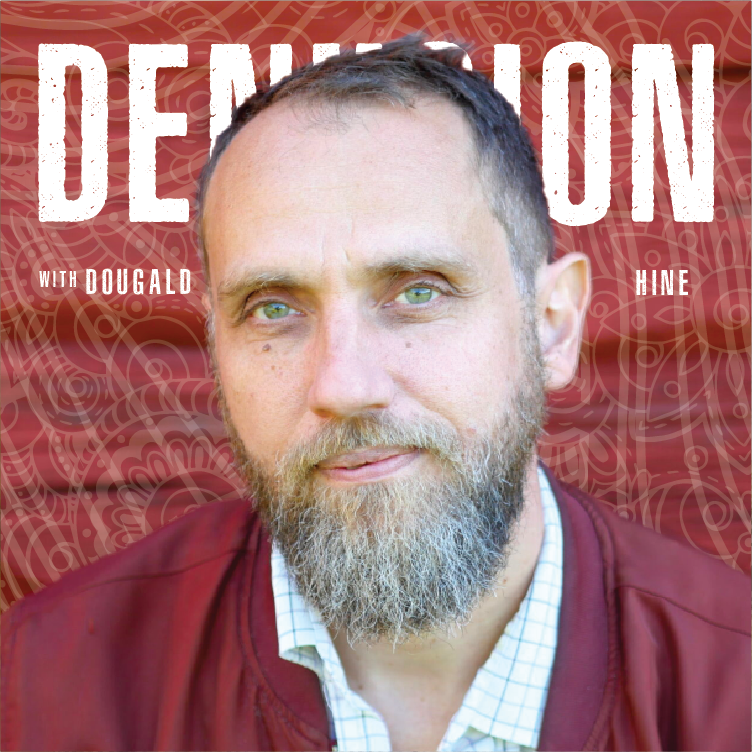Denuding the Illusion is written and directed by rewilding pioneer and award-winning author of four books, Daniel Firth Griffith. Here, we produce a reader-supported publication with corresponding podcast, weekly nature-based and cultural articles and essays, and more.
If you enjoy this work and if you find it helpful in your journey, please join our community-infused conflagration and venture deep with us.
Hit the like button!
Share and RESTACK these creative pieces for fellow addicts of the written and spoken word to enjoy.
If your financial situation allows, consider becoming a paid supporter (for less than $6/mo). While this may be small potatoes to you, it is the very potatoes that keep us alive!
Your time here, with us, co-creating in this space, means the world to us. Thank you!
Listen to the episode on Apple Podcasts or Spotify or watch the video on Youtube.
In this conversation,
of the Dark Mountain Project and A School Called HOME and the author of the book, At Work In The Ruins, discusses the limitations of science in addressing climate change and the need to question and reevaluate our understanding of the issue.He emphasizes the importance of embracing vernacular knowledge and ways of knowing, as well as living in hope and embracing the home, the community. Hine also explores the need for a new narrative that goes beyond the singularization of knowledge and the supremacy of science. He discusses the concept of coming home and the work of regrowing a living culture, as well as the role of hospitality and conviviality in creating a sense of home.
Overall, the conversation highlights the importance of turning inward and embracing home as a way to navigate the challenges of climate change and create a more sustainable future.
Takeaways
Climate change raises questions that go beyond what science can answer, necessitating a reevaluation of our understanding of the issue.
The singularization of knowledge and the supremacy of science limit our ability to address climate change effectively.
Embracing vernacular knowledge and ways of knowing, as well as living in hope and embracing depth education, can provide alternative paths forward.
Creating a sense of home and regrowing a living culture are essential for navigating the challenges of climate change and creating a sustainable future.
Hope is not a fixed concept but rather an empty palm into which something might land.
Embracing uncertainty and letting go of the need to know the future is essential.
Taking responsibility for the present and future is crucial in addressing global challenges.
Getting implicated and actively engaging with the realities and needs of the world can lead to meaningful action.



Finally got a chance to listen to this lovely dialog between two such fine minds. How interesting, Daniel, that you brought up the word "environment" just after Dougald mentioned Ewe Poerksen's observations on scientific language. It's from Poerksen I realized that "environment" was an example of what he called "plastic words."
"Is it bad luck with the chemistry or would we have always have come to this point due to how we fundamentally deal with the world?" is such a brilliant insight.